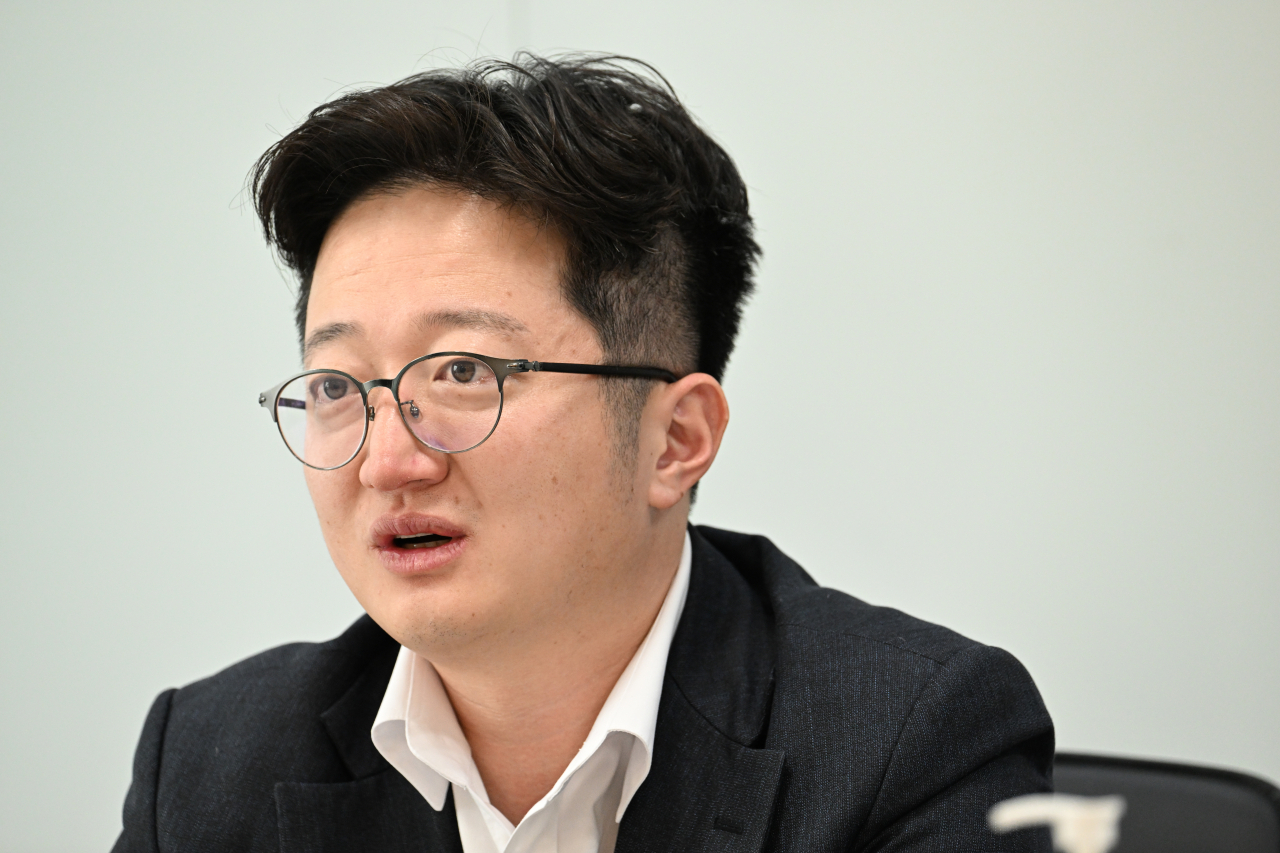[Herald Interview] Align Partners CEO faces off against SM founder, Hybe
Activist fund singles out poor governance as sole reason for ‘undervalued’ Korean stocks
By Park Han-naPublished : Feb. 21, 2023 - 16:14

A two-year-old activist fund that triggered a controversial corporate ownership battle between two K-pop powerhouses said it will persistently demand governance improvement of SM Entertainment until it makes substantial profit.
With only a 1.1 percent stake, Seoul-based Align Partners has been shaking up the governance structure of SM Entertainment, which is behind stars like NCT, EXO and aespa, by gathering minority shareholders.
Align’s shareholder campaign against the K-pop juggernaut has been successful so far. The grip of SM’s founder, producer and majority stakeholder Lee Soo-man has been weakened after the fund demanded the termination of its dubious and costly contract with the founder's private company.
Some people view shareholder activism as an act of an apostle of justice," Align Partners CEO Lee Chang-hwan said during an interview with The Korea Herald last week.
"But my job is finding out governance issues and mobilizing all means to fix the problem in order to raise the value of a company to make profit when we sell stocks."
Earlier this month, SM also mapped out its latest business strategy and development plan called SM 3.0 after the investment firm called for a sustainable music-producing system for its artists. Align called the package of schemes "independence from founder Lee" and that the firm's sales and operating profit will triple if realized as speculated.
In recent weeks, the campaign entered a new chapter as Korean tech giant Kakao and Hybe, the company behind global sensation BTS, both announced deals to buy stakes in SM. This ups the ante in a battle between SM’s founder Lee, who is joining hands with Hybe, and SM’s co-CEOs, who back the Kakao deal. Align is considered a "partner" of Kakao in this ongoing dispute.
Through the series of activism activities and acquisition talks, SM shares hit an all-time-high of 133,600 won ($103) on Feb. 16, up 86 percent from the beginning of this year.
As an investment firm, Align’s ultimate goal is yielding returns, not short-term profit-taking, the firm’s CEO said.
The next step Lee plans to take is joining the board of SM as an independent director to ensure that the company improves its corporate governance structure.
“An independent director has a tenure of three years. You can’t buy and sell stocks of SM during that period,” Lee said.
However, the Align CEO faces a tenuous path ahead. Taking on the role is subject to approval by shareholders, who are currently stuck between the SM founder’s buyout attempts and the SM co-CEOs’ attempt to cut Lee out in pursuit of SM 3.0.
Poor governance and undervalued Korean stocks
The 37-year-old Align CEO started his career at the Korean unit of New York-based investment firm KKR & Co., where he dealt with the sale of Korean beer maker Oriental Brewery and investment into the e-commerce platform Timon.
For any investors, companies listed on the Korean market are attractive enough because they are cheap, sound in performance, and have vast potential profits if they fix just one thing -- corporate governance.
“Korean stocks are significantly undervalued. The only reason for that is poor governance such as problems with shareholder structure or articles of incorporation,” he said.
Resolving the issue of conflict of interest between the largest shareholders and minority shareholders could prompt the benchmark Kospi index to jump to the 6,000-point level. The Kospi has stayed at the 2,500 point-level after hitting a 3,000-point milestone for the first time on hopes of an economic rebound from the coronavirus pandemic in January last year in its 39-year history.
“Some people assert that the lower valuation of Korean companies stems from the North Korean factor. But Taiwanese stocks, which may have bigger geopolitical issues involving China, have valuations twice as high as Korean ones,” he said.
The CEO sees it is the perfect timing for his firm and shareholder activism to emerge because of the growing interest of retail investors in the local stock market after the 2022 rally.
“The timing is right with the rapid growth of the stock investment population and enhanced understanding of the market in recent years,” he said. “Economic power, which has been concentrated in the establishment, is now shifting to the broader public.”







![[Graphic News] More Koreans say they plan long-distance trips this year](http://res.heraldm.com/phpwas/restmb_idxmake.php?idx=644&simg=/content/image/2024/04/17/20240417050828_0.gif&u=)
![[KH Explains] Hyundai's full hybrid edge to pay off amid slow transition to pure EVs](http://res.heraldm.com/phpwas/restmb_idxmake.php?idx=644&simg=/content/image/2024/04/18/20240418050645_0.jpg&u=20240419100350)






![[From the Scene] Monks, Buddhists hail return of remains of Buddhas](http://res.heraldm.com/phpwas/restmb_idxmake.php?idx=652&simg=/content/image/2024/04/19/20240419050617_0.jpg&u=20240419175937)

![[KH Explains] Hyundai's full hybrid edge to pay off amid slow transition to pure EVs](http://res.heraldm.com/phpwas/restmb_idxmake.php?idx=652&simg=/content/image/2024/04/18/20240418050645_0.jpg&u=20240419100350)

![[Today’s K-pop] Illit drops debut single remix](http://res.heraldm.com/phpwas/restmb_idxmake.php?idx=642&simg=/content/image/2024/04/19/20240419050612_0.jpg&u=)